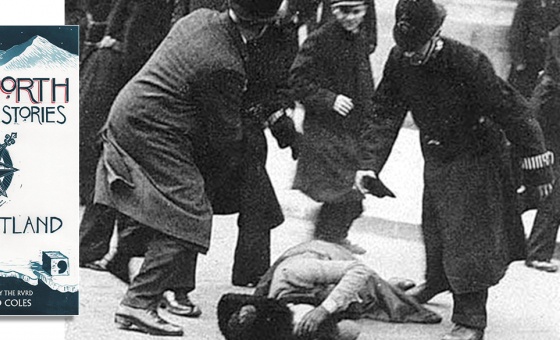This is the last article you can read this month
You can read more article this month
You can read more articles this month
Sorry your limit is up for this month
Reset on:
Please help support the Morning Star by subscribing here
NINETY-TWO years ago, on April 24 1932, 400 young ramblers made history on the rugged slopes of Kinder Scout.
By the 1920s and ’30s rambling had become a mostly working-class pastime. Tens of thousands of workers used their Sundays to go walking. For both workers and the unemployed, rambling was a welcome escape from the impoverished inner city.
Ramblers in the Peak District faced a particularly great number of obstacles. Of the 150,000 acres of mountains and moorland in the Peaks, only 1,200 acres, less than 1 per cent, enjoyed public access. There were only 12 “legal” footpaths to choose from.
The Trespassers were members of the Young Communist League and the Lancashire branch of the British Workers Sports Federation (BWSF). They were led by the secretary of the Lancashire BWSF, Benny Rothman.
They chose Kinder Scout as their target as it was the highest point in the area. It was also used to hold grouse for local landlords, who only went shooting around 12 days a year. The rest of the time the land was deserted, and walkers were not allowed.
The 400 Manchester ramblers set out from Hayfield. As they made their way up William Clough they scuffled with gamekeepers, but as they outnumbered them the ramblers were undeterred. On Kinder Plateau they were joined by a smaller contingent from Sheffield who had climbed up from Edale.
Upon their triumphant return to Hayfield, six of the Manchester ramblers were arrested and subsequently charged with riotous assembly. Rothman and four others were handed prison sentences between two and six months.
The Kinder Scout mass trespass is rightfully celebrated, but it is important to recognise that the movement for the right to roam neither began nor ended at Kinder Scout. The class struggle over the right of access to the countryside dates back centuries, to the late Middle Ages when landlords first began enclosing common land.
In Parliament, attempts were repeatedly made to secure an Access to Mountains Bill from 1884. The largest mass trespass in history, which involved thousands of people, was at Winter Hill in Bolton 38 years before Kinder in 1896.
The Kinder trespass made national headlines, won support for the right to roam and contributed to the eventual passing of the National Parks and Access to the Countryside Act of 1949. But it is still only one part of a centuries-long struggle over land ownership in our country that, crucially, is far from being complete today.
Progress has been slow and is only made through constant campaigning in the face of resistance from Britain’s landowning classes.
The principles of the Access to Mountains Bill first proposed in 1884, were finally put into law in 2000 with the Countryside and Rights of Way Act, 116 years later. Today, the open access land created by that Act accounts for just 8 per cent of England and 20 per cent of Wales. More than 150 constituencies in England have no open access land at all and most others only tiny percentages.
In Scotland right of responsible access might be the default, but in England the default is still exclusion.
Trespass law makes no distinction between a back garden and an aristocrat’s 13,000-acre estate, and now with trespass changing from a civil to a criminal offence, anyone who strays off of the permitted footpath or open access land can find themselves in front of a judge, just as it was 92 years ago.
“Right to Roam” is the campaign group leading the charge in the fight for a comprehensive right of responsible access to all of England and Wales. It has drafted a Right to Roam Bill modelled on the Scottish Land Reform Act of 2003 and is pressing MPs to support it. It is also upholding the legacy of the Kinder Scout Trespassers, continuing this direct action tradition through organising the mass trespasses last January and this February to protest against the attack on the right to wild camp on Dartmoor and the issue of access islands, areas of open access land that are entirely surrounded by private land.
This year’s Kinder Scout commemoration at Hayfield will see the launch of the Kinder Pledge, based on Benny Rothman’s 1989 Rivington Pledge but updated to reflect current issues and campaigns. It is a commitment to campaigning for a complete and universal right of responsible access to all of England and Wales’s diverse landscapes, and you can read the pledge in full on the Hayfield Kinder Trespass Group’s website, kindertrespass.org.uk.










